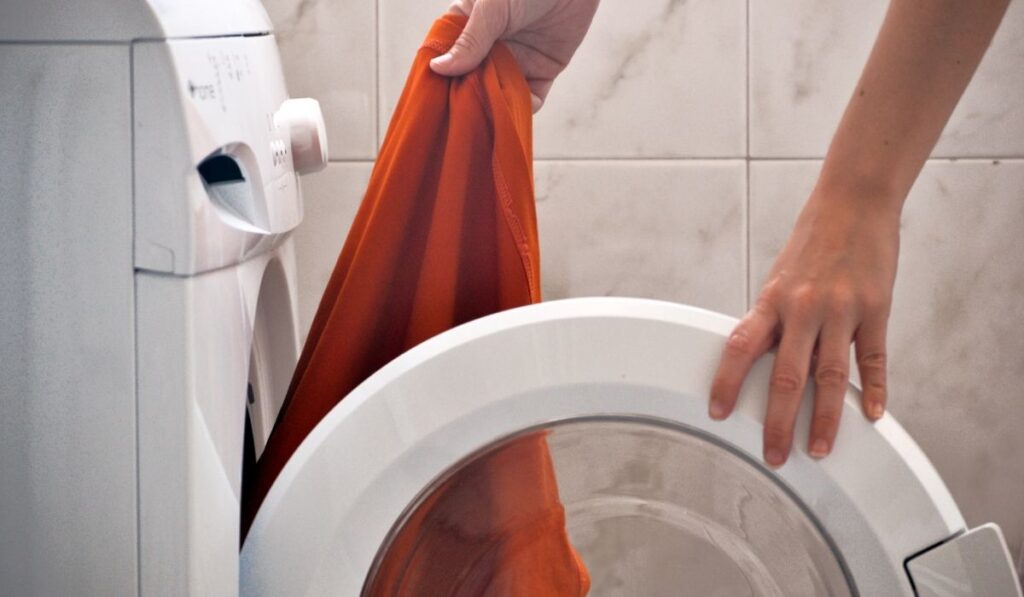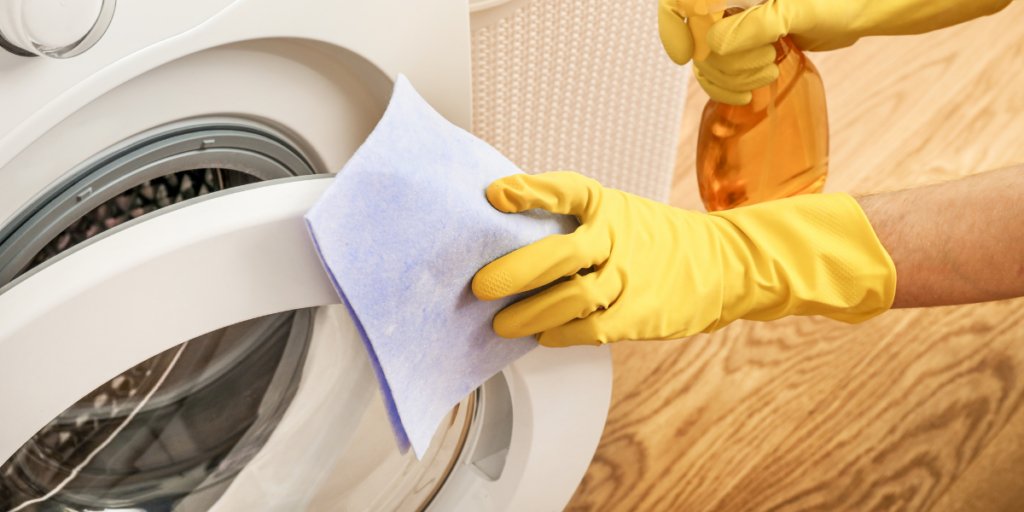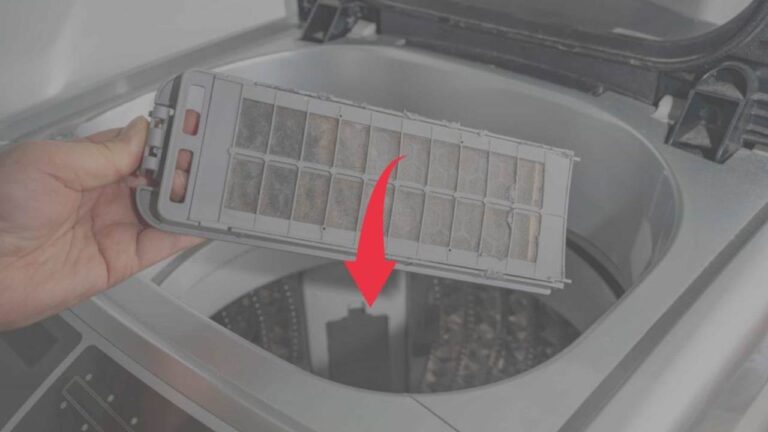Your Washing Machine Smells So Bad? How to Get Rid of Them!?
Nothing is more disappointing than expecting fresh laundry to come out of the washing machine and being instead hit with the musty, sour smell of the machine. Gone is that clean detergent smell; instead, an odor clings to your clothes and fills the laundry room. So, why does this smell?
A smelly washing machine is more common than you think. Usually, this is due to trapped residue, mold, or bacterial growth within parts of the machine that do not see the light of day. But no worries—there’s more good news than bad—after all, the odor will get out easily.
In this guide, we’ll discuss why your washing machine smells foul and illustrate easy and efficient ways to give it a fresh start and keep it smelling fresh. Our Appliance Repair Dubai team guide you in every step to protect you washing machine to run smoothly.
Why Does My Washing Machine Smell Bad? 13 Common Causes
Is your washing machine giving off a foul or musty smell? You’re not alone. Many homeowners face this problem, and the root causes often hide in plain sight.
A foul-smelling washing machine often indicates poor maintenance, where moisture is trapped, and bacteria grow. Common offenders include door seals infested with mold, detergent residue, and cool washing.
Below are the thirteen most common reasons your washing machine might smell bad—and how you can fix them.

1. Mold and Mildew Growth
Mold and mildew grow in the drum or small rubber door seal of washing machines, especially front-loaders. These dark and damp places provide the ideal ambiance for disgusting odors.
2. Detergent or Fabric Softener Residue
Residue buildup also results from too much detergent or using the wrong kind of detergent, such as non-HE detergent in HE machines. Slowly, these residues build up inside the drum, pipes, and detergent drawer, resulting in a musty smell.
3. Washing below 40 degrees
Low-temperature cycles do not efficiently kill the bacteria or dissolve oils and residues, which promotes the development of a slimy, odorous biofilm inside your machine.
4. Wet Clothes Left Inside
Moldy and stale smells in clothes and the washing machine arise from leaving clean laundry in the drum for too long.
5. Dirty or Clogged Detergent Drawer
Gunky build-up in and outside rooms. These will attract mold and bacteria, contributing to a bad-smelling odor.
6. Blocked or Dirty Filter
The lint, hair, coins, and other debris settle in the washing machine filters. If these are not cleaned regularly, it will lead to stagnant water and a bad smell.
Other Services Article: Fridge Leaking Water? Top 10 Reasons & How to Fix It
7. Dirty or Partially Blocking Drain Hose
The drain hose is clogged with lint, sludge, and detergent residues. The buildup can lead to odors, such as sewage, flowing back into the washing machine.
8. Standing Water or Poor Drainage
The water remaining inside the drum or pooling at the end of a cycle is not drained adequately, causing stagnant water from which bacterial contamination and musty odors may arise.
9. Dirty Door Seal (Especially on Front-Loaders)
The most common mold and odor problem hides here. The rubber gasket collects grime, lint, detergent, and pet hair in this moist, hidden space.
10. Bacterial Biofilm Growth
Biofilm is a slimy, unseen layer of bacteria that develops in pipes, around detergent inlets, and behind the drum. It is usually a cause of persistent smells and is very difficult to remove.
11. Hard Water Mineral Deposits
Limescale can mix with detergent in hard water areas to form crusty, smelly deposits stuck deep on your washer’s internal components.
12. Lack of Ventilation
Moisture collects inside when the washer door is closed and the detergent drawer is also closed between uses, thereby promoting mold and bacteria growth and ultimately a musty odor.
13. Sewage Odor Backflow
Scarce plumbing or drainage setups cause backflushing of sewer gas into the machine, resulting in unpleasant odors.

How to Get Rid of Washing Machine Smells: 10 Proven Tips That Work
Does your washing machine smell musty, sour, or even downright rotten? Do not panic; there are easy steps to overcome such situations. Below are the best cleaning, deodorizing, and maintenance techniques that provide you with never-ending prevention from any odor emission.
1. Clean the Washing Machine Drum
- Run a Hot Cycle with Vinegar: When empty, pour 2 cups of white vinegar into the drum and run it through the hottest cycle. Vinegar kills bacteria, disintegrates mineral build-up, and neutralizes odors.
- Clearing with a Baking Soda Cycle: Pour about half a cup of baking soda directly into the drum and heat another hot wash immediately after the vinegar washing. The process absorbs any remaining smell.
- Wipe the Drum After the Wash: After every wash, open the door and wipe down the drum with a clean cloth to avoid mold and moisture buildup.
2. Clean the Detergent Drawer
- Remove to Soak: Pull the drawer from the dishwasher to soak it in warm, soapy water, topped with splashes of vinegar.
- Dent or Detergent Residue Scrub Off: Clean the drawer and compartment using a toothbrush to eliminate stains, detergent buildup, and mildew.
- Dry It Completely: Allow it to dry completely before putting it in place again.
3. Scrub the Door Seal (Rubber Gasket)
- Check for Gunk and Mold: Remove the rubber seal and check for trapped debris, lint, and sometimes black mold.
- Clean with Vinegar or Bleach Solution: Use a rag soaked with vinegar to clean the gasket, or use a bleach solution for more hardened mold. Don’t forget the inner creases.
- Dry After Each Use: Wipe it down after every wash and keep the door ajar to prevent moisture buildup.
4. Clean the Washing Machine Filter
- Locate the Filter (Usually Bottom Front Panel): Unscrew the panel and place a towel or tray underneath.
- Remove Lint and Debris: Pull out the filter and rinse off hair, lint, and detergent scum under running water.
- Do This Monthly: Regular cleaning prevents clogs and foul smells.
5. Use the Right Detergent (and Right Amount)
- Overdosing your detergent: Excess soap leaves residuals on which bacteria feed, especially in high-efficiency (HE) washers.
- Use HE Detergent for HE Machines: Non-HE detergent creates more suds that promote buildup and musty smells.
6. Leave the Door Open Between Washes
Let Air Circulate: Keeping the door ajar will allow the inside to dry out and grow less mold and mildew.
7. Use a Washing Machine Cleaner Regularly
- Commercial Cleaners: Use a store-bought washer cleaner (try something like Affresh or Dettol) for a 1–2-month basis.
- DIY Option: Use a monthly vinegar and baking soda cycle as an eco-friendly alternative.
8. Deep Clean Monthly
Combine All Steps: Clean the drum, filter, gasket, and drawer every month to prevent smells from returning.
9. Check for Plumbing Issues
Smells Still Persisting? The issue might be in the drain or hose. Check for clogs, slow drainage, or sewer gases backing up.
10. Avoid Leaving Wet Laundry in the Drum
Remove Laundry Immediately: Letting clothes sit after the cycle ends encourages mildew growth. Remove them promptly.
Get Guide to Fix Refrigenerator: 6 Steps to Fix a Noisy Refrigerator | Troubleshooting Guide
Washing Machine Odor Prevention – Cleaning Checklist
| Area to Clean | How Often | Method |
| Drum | Monthly | Vinegar + Baking Soda Hot Wash |
| Detergent Drawer | Monthly | Soak + Scrub with Vinegar or Soap |
| Door Seal (Gasket) | Weekly or After Use | Wipe with Vinegar or Bleach Solution |
| Filter | Monthly | Remove & Rinse Debris |
| General Maintenance | After Each Use | Leave Door Open, Wipe Drum & Gasket Dry |
The Real Benefits of Keeping Your Washer Clean
The maintenance program for the washing machine is not intended solely for cleaning purposes but should be proper for its effective working and health while saving you most of your precious coins. Below are some great points to ponder on why cleaning should be done at regular intervals.
- Keeps Bad Smells Away: These chemicals bid a fond farewell to the musty odor caused by mold, mildew, detergent buildup, or bacteria-inducing detergent. Hello, fresh-smelling washing machine.
- Cleans Better: A clean machine should mean a more thorough cleaning. No grunge and no detergent residues will be tracked back into the laundry.
- Protects Your Investment: Regular servicing decreases wear on the machine and increases its efficient life, sparing it from expensive repairs in washing machines.
- Dampens Allergy: Mold spores and detergent residues could trigger allergies; hence, cleaning is a better option, ensuring a safety net for a healthier laundry space.
Professional Help for Persistent Washer Odors – Call Appliance Repair Dubai
Appliance Repair Dubai has earned a reputation as the best in diagnosing and repairing washer odors that refuse to go away. These odors are pesky and difficult to eliminate, attributed mostly to internal buildup, clogged filters, defective seals, and drainage problems.
Why Choose Appliance Repair Dubai?
- Expert Technicians: Our team undergoes training in mechanical engineering and is thus equipped to handle any major washer brand they might encounter.
- Deep Cleaning Solutions: We offer services such as internal drum cleaning, gasket replacement, and removal of any annoying odor.
- Fast Response Across Dubai: You can book same-day or next-day appointments with us.
- Transparent Pricing: More importantly, there are no hidden charges—it’s just honest and effective service.
Don’t let a smelly washer spoil your laundry routine. Appliance Repair Dubai offers fast, dependable washing machine odor solutions. Call now +971 552909054 or book your online service to refresh your washing machine today!




